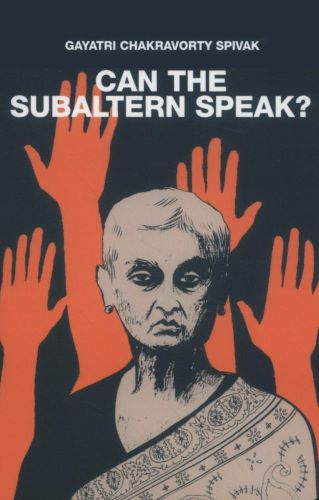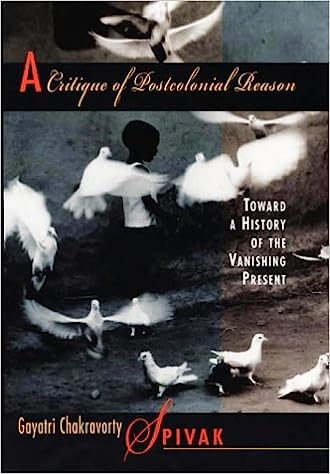
Spivak’s theory of post-colonialism is rooted in her belief that the legacy of colonialism has had a profound impact on the ways in which we understand ourselves and the world around us.
SHOUKAT LOHAR
Gayatri Chakravorty Spivak is an Indian postcolonial theorist, feminist, and philosopher who is widely regarded as one of the most influential scholars in the field of postcolonial studies.
 Gayatri is Professor at Columbia University, known for her English translation of Jacques Derrida’s seminal work Of Grammatology, and her own philosophical writings on the postcolonial condition that introduced the term “subaltern” into the philosophical lexicon.
Gayatri is Professor at Columbia University, known for her English translation of Jacques Derrida’s seminal work Of Grammatology, and her own philosophical writings on the postcolonial condition that introduced the term “subaltern” into the philosophical lexicon.
Her work has been instrumental in shaping our understanding of the complex dynamics of power and domination that have characterized the relationships between colonial powers and their subjects. In this article, we will explore Spivak’s theory on post-colonialism and the psychology of the colonized, as well as her most famous books and key contributions to the field.
Spivak’s theory of post-colonialism is rooted in her belief that the legacy of colonialism has had a profound impact on the ways in which we understand ourselves and the world around us. She argues that the colonial experience has fundamentally altered the way in which we think about race, gender, and identity, and that these changes have had a lasting impact on our consciousness and our ability to imagine different forms of social and political organization.
One of the key features of Spivak’s research on the psychology of the colonized is her emphasis on the ways in which colonialism has shaped our understanding of language, culture, and identity. She argues that colonialism has not only imposed a particular set of values and beliefs on its subjects, but also that it has fundamentally altered the ways in which they think about themselves and their place in the world. As a result, Spivak argues that the process of decolonization must involve a radical rethinking of our understanding of language, culture, and identity.
 Spivak’s most famous books include “Can the Subaltern Speak?” and “A Critique of Postcolonial Reason: Toward a History of the Vanishing Present.” In “Can the Subaltern Speak?” Spivak explores the ways in which the voices of marginalized groups have been silenced and excluded from dominant discourses of power. She argues that the subaltern, or those who are subject to domination and oppression, are often unable to speak for themselves and that their voices are therefore erased from history. In “A Critique of Postcolonial Reason,” Spivak examines the ways in which postcolonial theory has been used to justify the continuation of colonial power structures, and argues that a more radical critique is needed in order to truly challenge the legacy of colonialism.
Spivak’s most famous books include “Can the Subaltern Speak?” and “A Critique of Postcolonial Reason: Toward a History of the Vanishing Present.” In “Can the Subaltern Speak?” Spivak explores the ways in which the voices of marginalized groups have been silenced and excluded from dominant discourses of power. She argues that the subaltern, or those who are subject to domination and oppression, are often unable to speak for themselves and that their voices are therefore erased from history. In “A Critique of Postcolonial Reason,” Spivak examines the ways in which postcolonial theory has been used to justify the continuation of colonial power structures, and argues that a more radical critique is needed in order to truly challenge the legacy of colonialism.
One of the key contributions of Spivak’s work to the field of postcolonial studies is her emphasis on the importance of understanding the complex ways in which power operates in colonial and postcolonial contexts. She argues that power is not simply a matter of overt coercion or violence, but is rather embedded in the very fabric of our social and political structures. As a result, Spivak argues that the process of decolonization must involve a radical rethinking of our understanding of power, and a willingness to challenge the dominant discourses and structures that perpetuate colonialism.
Conclusions
Gayatri Chakravorty Spivak’s theory of post-colonialism and her research on the psychology of the colonized have been instrumental in shaping our understanding of the complex dynamics of power and domination that have characterized the relationships between colonial powers and their subjects. Through her work, Spivak has emphasized the importance of understanding the ways in which colonialism has fundamentally altered our consciousness and our ability to imagine different forms of social and political organization.
____________
 Shoukat Lohar is Assistant professor in English at Mehran University of Engineering and Technology Jamshoro. He can be reached at Shoukat.ali@faculty.muet.edu.pk
Shoukat Lohar is Assistant professor in English at Mehran University of Engineering and Technology Jamshoro. He can be reached at Shoukat.ali@faculty.muet.edu.pk